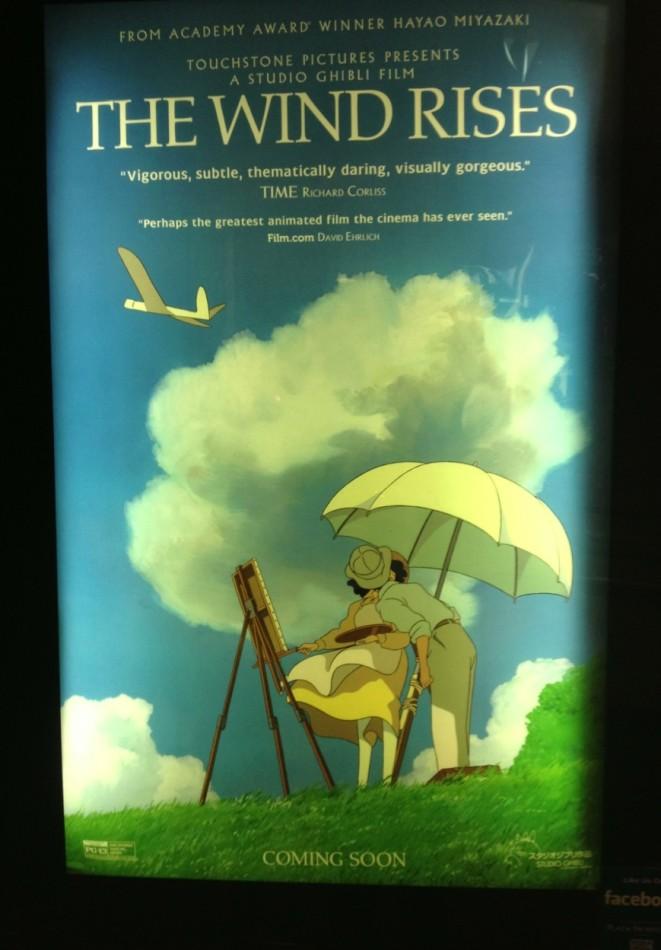Movie Review: The Wind Rises
The final film of Hayao Miyazaki’s successful career
The outstanding Japanese filmmaker, Hayao Miyazaki, has concluded his 51-year-long career with his Oscar-nominated motion picture, The Wind Rises. His dedicated fans, several of whom are Westminster students, will miss seeing him produce wondrous works like Spirited Away, My Neighbor Totoro, Princess Mononoke, and Howl’s Moving Castle.
Unlike most of his previous films, which contain magical characters and enchanting worlds, The Wind Rises is based on the life of a real Japanese aerospace engineer named Jiro Horikoshi who lived during the Second World War.
Miyazaki paints an inspiring story of a man full of potential and ambitions who pursues everything he loves with an undying passion. The pace of the movie is steady and different from Miyazaki’s previous hits, which almost always included action scenes and intense climaxes. He subtly expresses his anti-war stance and sheds light on the humanity of the Japanese citizens during the war. As usual, the animations were gorgeous and could easily captivate viewers the entire 126 minutes.
The film is set in post-World War I Japan where the people can sense that a second war will break out. It opens with a young Jiro dreaming of flying the plane he built, but the blissful dream turns into a nightmare when dark figures from war planes attack and destroy it to pieces. As a child, Jiro knows that he cannot become a pilot because of his damaged eyesight, but he is influenced by the Italian engineer, Caproni, and fosters great dreams of building an airplane.
With WWII approaching, Jiro realizes that if he becomes an engineer, he is bound to build fighter planes instead of the passenger planes that he been dreaming to make. Still, since the country is falling behind technologically, he is determined to develop planes that will boost the weaponry of his home country to the level of the Germans.
In the midst of all this, Jiro finds the woman he loves and chooses to marry her despite her deteriorating health. When he first meets his lover, Naoko, she quotes a line from a poem by Paul Valéry:
“The wind is rising.
We must try to live.”
This motivates him to chase his dreams despite Japan’s limited resources and to complete the building of the Japanese fighter plane, Zero.
The main criticism that viewers have of The Wind Rises is that it fails to acknowledge the damage that the Zero had caused during the war and seems to glorify it instead. Some people also criticize Miyazaki for glazing over the controversial aspects of Jiro’s career. However, Miyazaki’s contempt for war and destruction is manifest in the final scene of The Wind Rises. Jiro acknowledges that though he succeeded as an engineer, many things in his life fell apart. Caproni, who is with him, states that war will always bring negative effects on the world.
The film is nearly flawless and certainly worthy of an Oscar nomination. Though fans may have expected Miyazaki to conclude his career with a bang, this steady, touching movie was a excellent way to end it.
The Wind Rises is only playing at the Landmark Plaza Frontenac Theater for a little while, so if Westminster students want to watch it, they should go before it is too late.




